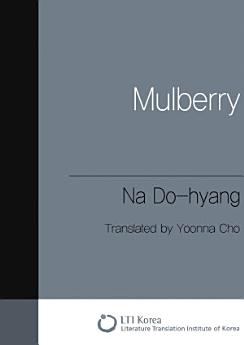Mulberry
11.2014 г. · 20th Century Korean Literature Книга 31 · Literature Translation Institute of Korea
3,5star
2 отзиваreport
Електронна книга
14
Страници
reportОценките и отзивите не са потвърдени Научете повече
Всичко за тази електронна книга
Surprisingly little has been written about “Mulberry” (1925), a classic Na Do-hyang story that was also made into a cult film in 1986. Exploring one of the recurring themes of Korean fiction from this period, that of the financially incompetent husband and sexually exploited wife, it also provides one of the first glimpses of women’s agency in modern Korean literature. While the sex work premise is hardly progressive, the views on independence and sexual ownership expressed by the female protagonist are radically assertive for the time. As it is so often with Na Do-hyang, the intent is not to uplift or depress, but rather to offer impartial commentary; hard as it may be to imagine for modern readers, his characters are not so much exaggerated as faithfully drawn from the extreme hardship many of their contemporaries suffered.
Оценки и отзиви
3,5
2 отзива
За автора
Na Do-hyang (1902 - 1927)’s real name is Kyung-son and his pen name is Bin. He was born in 1902. After graduating from Baejae Normal High School, he was admitted to Kyeongseong Medical School but dropped out and went to Tokyo, Japan, to study literature, returning in 1919 to teach at an elementary school in Andong for one year. He began his literary career in 1921, publishing “Leaving Home” in the Baejae School Newspaper and later on, his short story “Memory” in the People’s Opinion. In 1922, as a member of the literary coterie magazine The Swan, he published his work “The Seasons of a Young Person” in its first edition.
Оценете тази електронна книга
Кажете ни какво мислите.
Информация за четенето
Смартфони и таблети
Инсталирайте приложението Google Play Книги за Android и iPad/iPhone. То автоматично се синхронизира с профила ви и ви позволява да четете онлайн или офлайн, където и да сте.
Лаптопи и компютри
Можете да слушате закупените от Google Play аудиокниги посредством уеб браузъра на компютъра си.
Електронни четци и други устройства
За да четете на устройства с електронно мастило, като например електронните четци от Kobo, трябва да изтеглите файл и да го прехвърлите на устройството си. Изпълнете подробните инструкции в Помощния център, за да прехвърлите файловете в поддържаните електронни четци.








